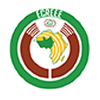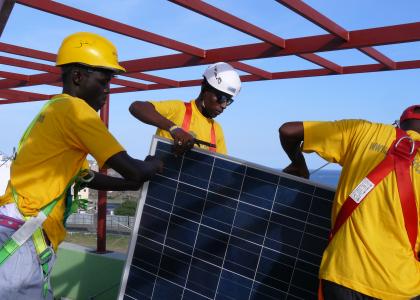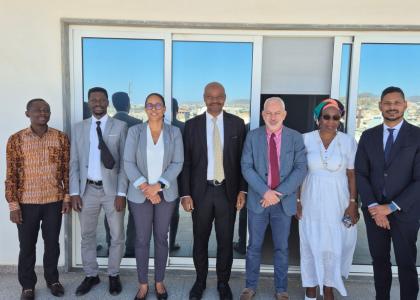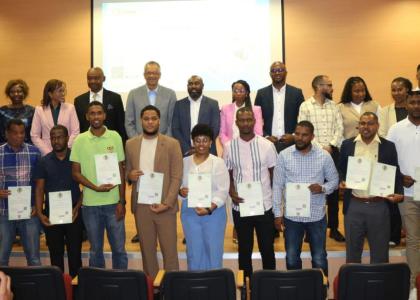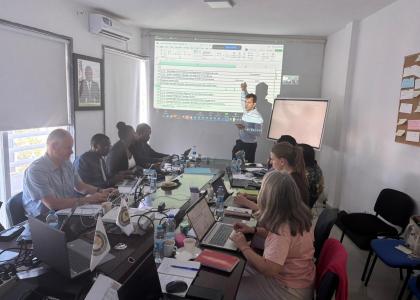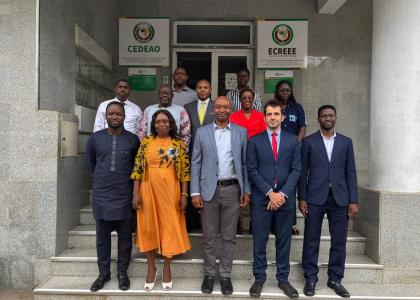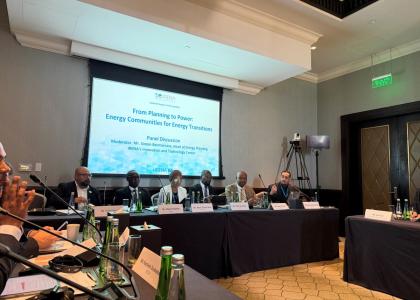Cabo Verde, October 16 – 20 - With the support of the Austrian Federal Ministry for Agriculture, Forestry, Environment and Water Management (BLMFUW), ECREEE solicited the technical expertise of the Universite Cheikh Anta Diop de Dakar- Centre d´Estudes et de Recherche sur les Energies Renouvalables (CERER) to undertake hands-on training for local cookstove artisans in Island of Santiago, Cabo Verde. This workshop is one of the 2017 WACCA activities planned for specified countries in the ECOWAS region to undertake capacity building activities on design and construction of modern and efficient cookstoves.
The objective of WACCA is to bring clean, safe, affordable cooking energy solution to the entire ECOWAS population by 2030 in line with the overall objective of ECREEE to promote energy access, renewable energy and energy efficiency within the ECOWAS region.
Specifically, the capacity building activity on design and construction of improved stoves in Cabo Verde was planned with the aim to:
- Promote local manufacturing of efficient, affordable, clean cookstoves and support the emergence of local businesses and create local employment;
- Strengthen capacities of public and private entities (market enablers and players) to develop and implement investments in clean cookstoves projects in the country;
- Make clean and efficient cookstoves readily available and affordable to people in rural, peri-urban and urban areas of the entire country;
- Increase the health, financial and social benefits associated with the use of improved cookstoves;
- Enhance productive lives of families (women and children) by dedicating more time to other activities as they spend less time collecting firewood and save costs on fuel expenses.
- Promote the development, demonstration and dissemination of clean cookstoves technologies and services in the country.
The event was held against the backdrop that, over 90% of households in the ECOWAS region is still dependent on traditional biomass (wood and charcoal) as primary energy source for cooking. Globally, smoke from the kitchen results in over four million deaths annually and affects women and children disproportionately. Cabo Verde cannot be said to be completely devoid of this sad scenario, especially at the rural areas where people still rely on woody biomass for daily cooking and heating. Beyond the adverse health effects, traditional cooking method is expensive, burning up to 90% more wood than is necessary. It is therefore important and timely for the training to be held in the communities where reliance of woody biomass is still prominent.
Training outcomes/deliverables
The training was open, hands-on and highly participatory with all participants showing their expertise as well as learning new skills and technologies associated with the new model developed by CERER. At the end of the 5 days training, participants had been:
- Trained on the design and build of the new model of stove which had been engineered at the research Centre of CERER in Dakar.
- Sensitized and capacities enhanced on the production of modern, efficient, affordable and sustainable cookstoves using locally available materials;
- Provided with information on best practices and challenges on production and use of sustainable cookstoves within the constraints of local resources;
- Sensitized on the linkages between clean cooking and sustainable production and management of feedstock resources available in the local market and communities.

